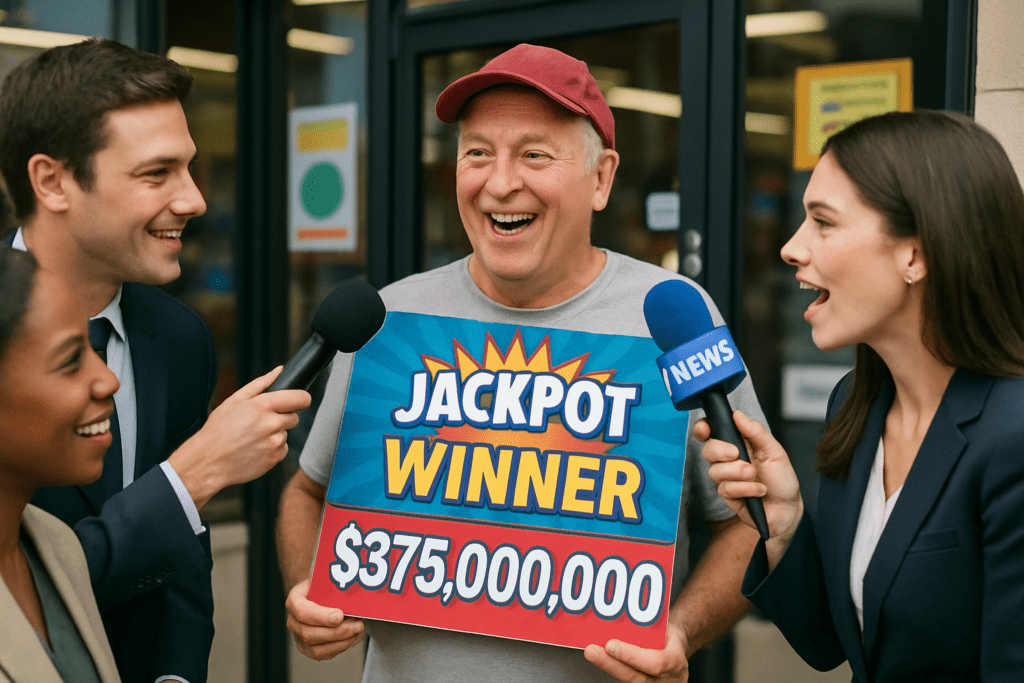Lottery Philanthropy: Winners Who Chose to Give Back
- Introduce the idea that lottery wins don’t just transform individual lives—they can uplift entire communities.
- Set the tone: spotlight stories where sudden wealth leads to lasting generosity.
- Mention the primary keyword: lottery philanthropy.
Lottery Philanthropy: Winners Who Chose to Give Back
When most people dream about hitting the lottery, they picture fancy houses, exotic vacations, and quitting their jobs on the spot. But for some, the win becomes a chance to do something much bigger—not just for themselves, but for everyone around them. That’s the heart of lottery philanthropy: using sudden fortune as a tool to uplift entire communities, not just personal bank accounts.
These are the winners who turn impulse into impact. Instead of keeping it all, they look outward and see where their windfall can do the most good. Philanthropy doesn’t always get top billing in headline stories about lottery winners, but there’s a growing tradition of givers quietly—and sometimes boldly—changing lives beyond their own. This article spotlights those who saw a jackpot not just as a stroke of luck, but as a responsibility, and proved that generosity can be a jackpot in itself.
The Ripple Effect: Why Some Winners Go Beyond Personal Wealth
Not every lottery winner decides to upend their life for personal gain. For some, hitting the jackpot cracks open an opportunity—an odd mix of gratitude and responsibility. These charitable winners are driven by something bigger than bank accounts: sometimes it’s a genuine wish to make a difference with winnings, pay forward kindness they once received, or repair something broken in their hometown. Sometimes it’s just the sheer shock of sudden fortune that makes giving back feel like the obvious next move.
There’s no universal switch that flips a winner into a philanthropist, but the pattern shows up time and again. Some folks see charity as a duty—a way to square up with luck, or to use their windfall to spark change where it matters, and a few want to leave a legacy that means more than material luxury. Of course, not everyone who scores big feels this tug. Many choose privacy or personal comfort, and that’s valid too. But those who do give? They can turn a personal win into a wave of good, proving that wealth, when shared, can echo through a whole community.
Inspiring Stories: From Jackpots to Generosity
Big lottery wins can mean more than fancy cars and luxury vacations. For some, it’s a chance to make a serious dent in hometown problems. Take the example of Tom Crist from Calgary, who quietly donated his entire $40 million windfall to cancer charities in honor of his late wife. Instead of public celebrations, Tom focused on expanding research and treatment options, a move that has healthier families across Canada quietly thanking him.
Then there’s the story of the Smith family in Illinois, who put $2 million of their Powerball winnings toward building a new youth center in their small town. Before, local teens had nowhere safe to go after school; now, they have a modern space to learn, play, and stay off the streets. Crime rates have dipped, and high school graduation numbers are climbing—a ripple effect you can actually measure.
And who could forget the nursing assistant from New Hampshire who, after her $559 million win, set up a fund for local women’s shelters and free medical clinics? Her gift didn’t just write checks; it kept doors open, funded winter heating, and provided hundreds of families with critical care.
These stories stand out not just for the size of the checks, but the visible, lasting difference made. For more winner stories like these, see inspirational big win stories.
Where the Money Goes: Community Donations That Matter
Most lottery winners aren’t funding sprawling empires or headline-making megaprojects. The heart of lottery philanthropy is quieter, low-key, and—often—local. Sure, a flashy story or two breaks through about someone donating millions to a hospital wing, but look closer and you’ll see frontline support where it’s needed most.
Local non-profits and food banks get a lifeline from charitable winners, sometimes just enough to keep the doors open or put an extra meal on the table for families in tough spots. Education and youth programs are another favorite: new computers in classrooms, after-school activities, or scholarships for students who wouldn’t otherwise get a shot.
Healthcare isn’t overlooked—think small clinics getting vital equipment or crisis support groups offering mental health resources thanks to a sudden windfall. And then there’s the subtle stuff: money for arts festivals, city parks, or community theater—those things that glue a town together but usually get nudged to the budget back burner.
Most of these are small, targeted gifts that punch above their weight: $10,000 here, $50,000 there. It’s not always about the dollar amount—it’s about showing up for your own backyard. That’s where lottery philanthropy proves it can have an outsized impact: not by chasing headlines, but by quietly changing the game for local communities.
Challenges and Realities: Not Every Good Deed Is Easy
Giving away a fortune sounds simple, but the reality is often gritty. Winning big is a shock to the system, and so is suddenly becoming everyone’s “solution.” The phone starts ringing. Letters show up. Old friends, distant relatives, and total strangers surface with requests that swing from reasonable to wild. Sorting through these asks takes stamina and a sharp sense of boundaries. Keeping your own life intact while handling community donations is tougher than it looks.
Privacy becomes precious, and hard to protect. Winners who go public with their good deeds can face a wave of attention—even scrutiny—while those who keep quiet may still struggle to fly under the radar. Some turn to experts, setting up family foundations or charitable trusts to streamline their giving and maintain a layer of distance. Others channel their lottery philanthropy in stealth mode, using anonymous gifts, private meetings, or partnerships with local groups.
And then there’s balancing personal needs with public expectations. A big win may look infinite, but it isn’t. Responsible winners figure out how much to hold back, how much to share, and where their gifts will actually help, not hurt. The most effective community donations often come not from a blank check, but from clear plans and realistic limits. For many, the hardest part isn’t writing the check—it’s learning when and how to say “no.”
Looking Beyond the Headlines
There’s always more to the story than the oversized check photo-op. If you suddenly found yourself in the spotlight with millions to spare, it’s easy to feel overwhelmed by requests and expectations. That’s why the savviest lottery philanthropists don’t just hand over a stack of bills—they get strategic. Planning matters. Finding proven, trustworthy causes, teaming up with solid local organizations, and keeping things transparent can mean your generosity survives the headlines and actually changes lives. Want to see how seasoned winners approach careful giving? Check out this article on philanthropy and lotteries—it’s full of lessons for jackpot newbies and everyday givers alike.
Conclusion: Big Wins, Bigger Hearts
Lottery philanthropy isn’t just about headline-grabbing checks or flashy gestures. At its core, it’s proof that a stroke of luck can fuel something bigger than one person’s dream. When winners channel their good fortune into action—whether it’s supporting a local shelter or rebuilding a playground—the positive effects stack up. Neighborhoods change. Lives quietly get better.
But you don’t need lottery millions to make a mark. The same spirit that drives charitable winners is something we can all tap into, no jackpot required. A little generosity adds up, especially when it’s close to home. Big wins are rare, but bigger hearts can show up every day.

 George Dreyer brought valuable knowledge and creativity to the development of Jackpot Rush Empire, playing a key role in shaping the platform’s vision alongside its founder. With his keen eye for detail and dedication to quality, he helped ensure that the site delivers engaging lottery insights and meaningful content for its audience. His contributions were essential in building a platform that not only informs players about results and jackpots but also emphasizes responsible gaming and safe participation, aligning closely with the mission of Jackpot Rush Empire.
George Dreyer brought valuable knowledge and creativity to the development of Jackpot Rush Empire, playing a key role in shaping the platform’s vision alongside its founder. With his keen eye for detail and dedication to quality, he helped ensure that the site delivers engaging lottery insights and meaningful content for its audience. His contributions were essential in building a platform that not only informs players about results and jackpots but also emphasizes responsible gaming and safe participation, aligning closely with the mission of Jackpot Rush Empire.
